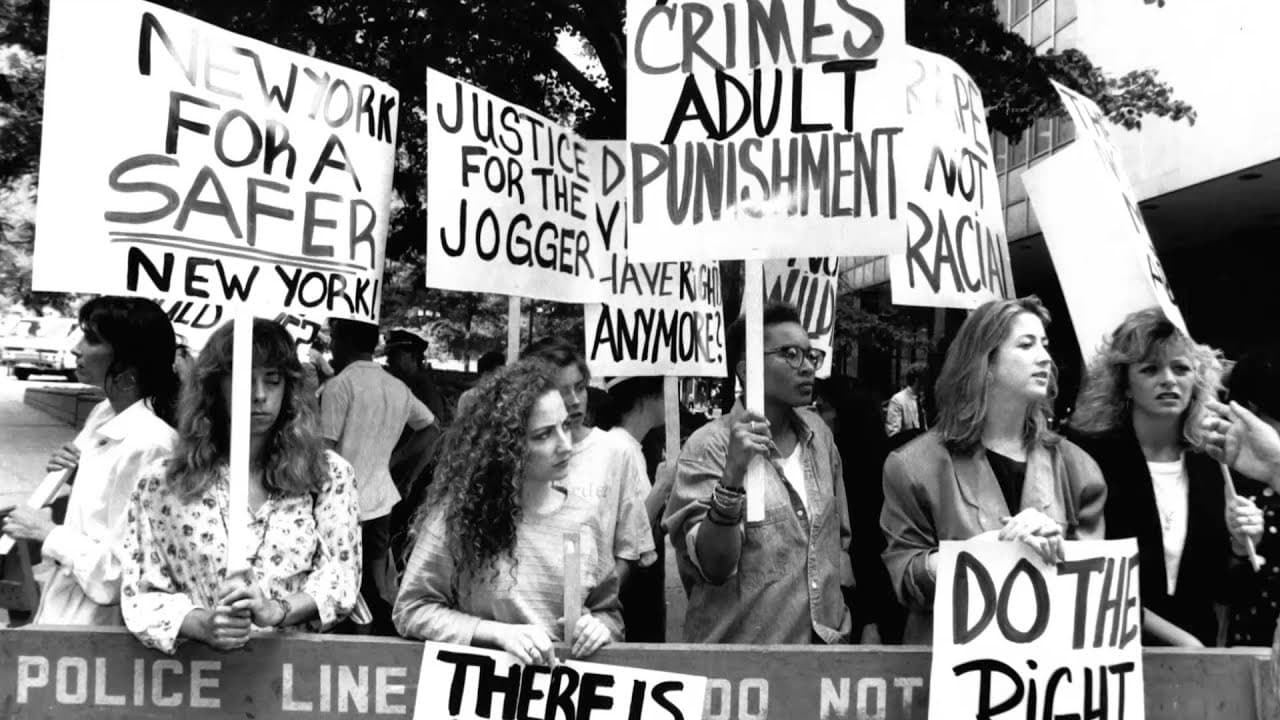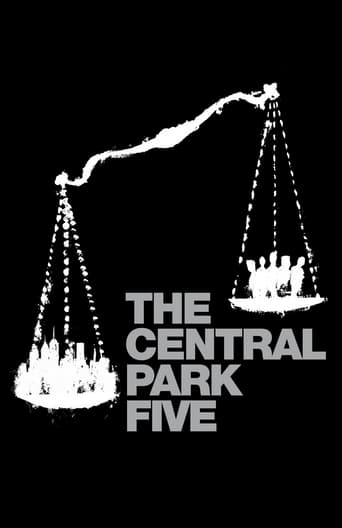

Dreadfully Boring
... View Morebrilliant actors, brilliant editing
... View MoreA Disappointing Continuation
... View MoreIt's entirely possible that sending the audience out feeling lousy was intentional
... View More... and that was ponderous to me considering some of the evidence. First, the brutality of the crime - a young woman gang raped and nearly beaten to death with a pipe to the point where even today she has some cognitive problems - grabbed headlines nationwide.The five young men charged with the crime all confessed. It seemed so open and shut. But there were problems. All five confessions told different accounts of the crime. The crime scene itself showed that there was not enough room for five suspects. And most concerning, the DNA evidence from the crime matched none of the suspects. The prosecution's explanation -there must be a sixth rapist that they didn't catch. The victim herself could not help with any ID because she had been unconscious throughout the attack.What was not clear to me is how much of this the jury that convicted the five got to hear. Back in 1990, DNA was new, and not really understood by the public like it is today. All five were convicted on all counts and got fairly short sentences considering the brutality of the crime - 5 to 10 years - mainly because all but one was a minor.In 2002, the actual rapist crossed paths with one of the Central Park Five in prison - they had a short conversation - and the actual rapist began to talk to other cellmates about how these other people were doing time for a rape he had done. It was only then that investigators interviewed him, found his DNA matched that at the crime scene, and that his confession matched every detail of the crime and cleared up some details of the crime that the police had never been able to figure out. Very quickly thereafter the Central Park Five had their convictions vacated. Yes, they could go back to their lives, but they had lost half their teens and all of their 20's. As you get older you realize the worst thing you can waste or be robbed of is time.There were a few eyebrow raising moments besides the obvious ones. For one, the alibi of the Central Park Five was that they had been beating up and harassing people in another part of Central Park at the time the rape was committed, so these kids were hardly Sunday school teachers. The second eyebrow raising moment was when one African American journalist said that the black community turned against the five because many had been "harassed, raped, pushed around, and pocket book snatched" by young black males. I'm sorry, but what crime does not belong in this list? As long as a community does not see rape as the ultimate violation of a human being, just shy of murder, then any conversation about crime and punishment is probably going to have a disconnect. Then there was Donald Trump (yes THAT Trump) putting full page ads wanting the death penalty. I mean - Really? the woman was not dead, the suspects were minors.I'd recommend this documentary. It just lets the participants and the facts speak for themselves, like Ken Burns' documentaries usually do. Definitely worth looking at if you remember the crime but only faintly remember the exoneration.
... View MoreThis film is about how five youths were incarcerated, pressured to admit to a very serious crime which they did not commit, and then attempt to fight their way back to life. It's a plain, matter-of-factly documentary that shows how the American criminal justice system not only is slanted to work against minorities, but how white people almost always - legally speaking - come out on top.This is a simple film that deals with the facts, and it's good at showing things for what they were and are, and how the lives of five kids can be destroyed and how the media displayed the kids as a freak show, as animals on parade, just because they felt like scapegoating them, not because the facts were interesting; talk about small letters when the exonerations came.
... View MoreThe Central Park Five is a documentary that talks about a controversial New York City case back in the late 80's. Five minorities were convicted of a crime that they didn't commit, but with the corrupt justice system they were found guilty based on false confession tapes. It took place during a time where New York City was segregated, whites were downgrading the blacks in every way that they could. It wasn't a coincidence that the five minorities were accused of raping and brutally beating a white female jogger in Central Park, they were used as scapegoats and threw each other under the bus. Detectives encouraged them to make up stories about one another so that they could go home to eat and sleep, two things that they couldn't do at the precinct. The boys were all found guilty and spent many years of their lives behind bars for doing absolutely nothing. They lost their childhood innocence while being imprisoned, they were forced to mature at a much younger age than other kids. Not only was I truly disappointed in the boys for not telling the truth and allowing the police officers to get into their heads, but I was also disappointed in the justice system for wrongfully convicted these boys of a crime they didn't commit. The media also took part in this case by saying the boys committed the crime before the trial was even over. Therefore the media manipulated the minds of New Yorkers into making them truly believe that the boys were guilty of the crime. I would definitely recommend watching this documentary as it is an emotionally touching film that takes you back in time when the judicial system wasn't fair to people of all races. This documentary allows you to realize that racism will always be present whether it seems like it or not.
... View MoreA very well made documentary. It chronicles the entire event from the innocent youths being rounded up by the corrupt New York cops or prosecutor, to the mens' exoneration and beyond. It was well put together and the footage and newspaper articles were clearly represented. The victim interviews show them for what they are - innocent kids used as scapegoats and forced into confession for a crime they did not commit. The sense of injustice abounds, especially when the crooks in suits knew they had the wrong people, but went ahead with it anyway. It leaves one feeling angered and somewhat helpless, that you cannot defeat an enemy like the corrupt American justice system - especially when the system is proved wrong but refuses to show remorse or make amends, as so often happens (varies by state). The documentary leaves the city of New York as a city of shame, one where justice is corrupt, especially for blacks and Hispanics. I was left feeling that they could happily put a bullet in the head of the prosecutor and the cops as payment for their services rendered - but these men are more decent human beings than any of the prosecutor and the corrupt police, the media and anyone else who treated them as rapist monsters. Unfortunately, no compensation has been paid to any of the victims as the City of New York does its utmost to ensure justice will not be done. It needs to protect its wallet and the phony reputation of New York's "finest". I doubt I will ever want to visit New York, the city of shame.
... View More